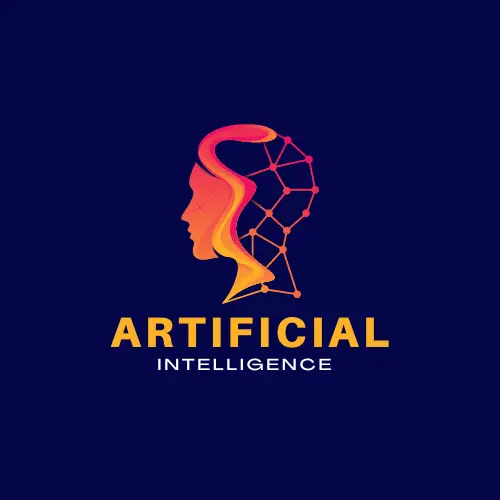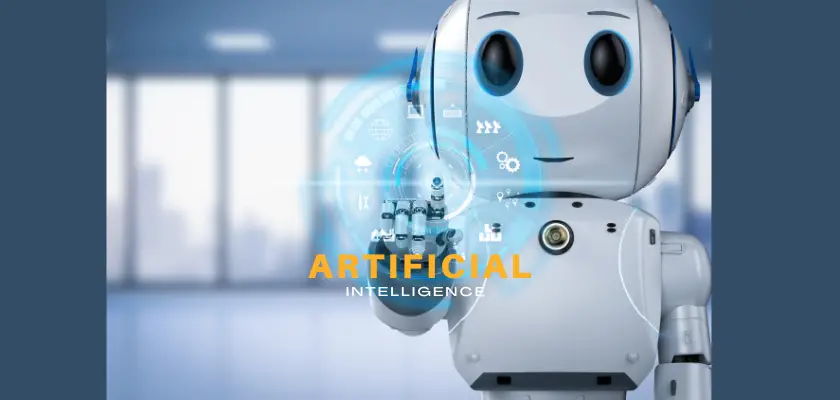In the ever-evolving landscape of healthcare, artificial intelligence (AI) is revolutionizing the way patient care is delivered. As a nurse, I have witnessed firsthand the immense potential of AI-driven diagnostics in enhancing patient care.
Gone are the days of relying solely on human expertise and manual processes.
How AI-Driven Diagnostics Enhance Patient Care: A Nurse’s Perspective
AI technology is now helping healthcare professionals streamline their workflows, make accurate diagnoses, and provide personalized treatment plans.
This transformative shift not only saves time and resources but also improves patient outcomes.
From advanced algorithms that analyze medical images with unparalleled precision to AI-powered chatbots that provide instant medical advice, the possibilities are endless.
In this article, we will explore the various ways AI-driven diagnostics are revolutionizing patient care from a nurse’s perspective, highlighting the benefits, challenges, and ethical considerations that come with integrating AI into healthcare practices.
Join me as we delve into the exciting world of AI and discover how it is shaping the future of healthcare.

The Role of AI in Improving Patient Care
As technology continues to advance at an unprecedented rate, it has become increasingly clear that AI has a crucial role to play in improving patient care.
AI-driven diagnostics have the potential to revolutionize healthcare by providing faster, more accurate diagnoses, and enabling healthcare professionals to deliver more personalized treatment plans.
By leveraging vast amounts of data, AI algorithms can identify patterns and trends that may not be immediately apparent to human clinicians.
This can lead to earlier detection of diseases, more targeted interventions, and improved patient outcomes. Additionally, AI can help healthcare providers optimize their workflows, allowing them to spend more time with patients and provide better overall care.
One of the key advantages of AI-driven diagnostics is the ability to analyze vast amounts of medical data in a short amount of time.
Traditional diagnostic methods often require manual analysis of medical images, which can be time-consuming and prone to human error.
AI algorithms, on the other hand, can analyze thousands of images in seconds, providing healthcare professionals with more accurate and timely information.
This can be particularly useful in emergency situations where quick decision-making is crucial. AI can also assist in the interpretation of complex medical data, such as genomics or pathology slides, helping clinicians make more informed treatment decisions.
Related Articles
Virtual Nursing Assistants
Benefits of AI-Driven Diagnostics from a Nurse’s Perspective
From a nurse’s perspective, the benefits of AI-driven diagnostics are abundant.
One of the key advantages is the ability to enhance patient safety. AI algorithms can help identify potential medication errors, flagging any discrepancies between prescribed medications and patient allergies or contraindications.
This can help prevent adverse drug reactions and improve patient outcomes. Additionally, AI can assist nurses in monitoring patients’ vital signs, alerting them to any abnormalities or potential deterioration in real-time.
This early warning system can help nurses intervene promptly, potentially saving lives.
Another benefit of AI-driven diagnostics is the ability to provide personalized care. By analyzing patient data, including medical history, genetic information, and lifestyle factors, AI algorithms can generate tailored treatment plans that take into account individual patient needs.
This can lead to more effective interventions and improved patient satisfaction. Furthermore, AI-powered chatbots can provide patients with immediate access to medical advice, reducing the need for unnecessary hospital visits and easing the burden on healthcare facilities.

Challenges and Concerns Surrounding AI in Healthcare
While the potential benefits of AI-driven diagnostics are immense, there are also challenges and concerns that need to be addressed.
One of the main concerns is the potential for bias in AI algorithms. If the training data used to develop these algorithms is not representative of the diverse patient population, it can lead to disparities in care.
For example, if the majority of the training data only includes information from a specific demographic group, the algorithm may not perform as effectively for individuals from other backgrounds.
This can result in misdiagnoses or unequal access to healthcare resources.
Another challenge is the ethical implications of AI in healthcare. Privacy and data security are of paramount importance when dealing with sensitive patient information.
AI systems must adhere to strict privacy protocols to ensure patient confidentiality and protect against data breaches.
Additionally, the use of AI in decision-making raises questions about accountability and transparency. Healthcare professionals need to understand how AI algorithms make decisions and be able to explain their rationale to patients and colleagues.

How AI Enhances Patient Assessment and Diagnosis
AI-driven tools have the potential to significantly enhance patient assessment and diagnosis. By analyzing patient data, including symptoms, medical history, and test results, AI algorithms can provide healthcare professionals with valuable insights and recommendations.
For example, AI-powered decision support systems can help nurses identify potential diagnoses and suggest appropriate interventions based on the patient’s symptoms.
This can help streamline the diagnostic process and ensure timely and accurate treatment.
Furthermore, AI algorithms can analyze medical images, such as X-rays or MRIs, with unprecedented precision.
This can aid in the detection of subtle abnormalities that may not be immediately apparent to the human eye.
By highlighting areas of concern, AI can help healthcare professionals make more accurate diagnoses and develop appropriate treatment plans.
This can be particularly beneficial in fields such as radiology or pathology, where complex images require careful analysis.
AI-Driven Tools and Technologies for Nurses
AI-driven tools and technologies are rapidly evolving, providing nurses with new and innovative ways to deliver patient care.
One such tool is the AI-powered chatbot, which can provide patients with instant medical advice and support.
These chatbots use natural language processing algorithms to understand patients’ queries and provide relevant information.
They can help patients assess their symptoms, provide self-care instructions, and even schedule appointments with healthcare professionals when necessary.
This not only improves patient satisfaction but also reduces the burden on healthcare facilities.
Another AI-driven technology that is gaining traction in nursing practice is predictive analytics.
By analyzing large datasets, predictive analytics algorithms can identify patterns and trends that can help nurses anticipate patient needs and allocate resources more efficiently.
For example, by analyzing patient data, these algorithms can predict the likelihood of readmission or the risk of developing complications.
This allows nurses to intervene proactively and provide targeted interventions, improving patient outcomes and reducing healthcare costs.

Case Studies Showcasing the Impact of AI-Driven Diagnostics
Real-life case studies demonstrate the tangible impact of AI-driven diagnostics on patient care. One such case involves the use of AI algorithms to analyze retinal images for the early detection of diabetic retinopathy.
Diabetic retinopathy is a leading cause of blindness, and early detection is crucial for successful treatment. By analyzing retinal images, AI algorithms can identify signs of the disease that may not be immediately apparent to human clinicians.
This enables early intervention, improving patient outcomes and preventing vision loss.
Another case study focuses on the use of AI algorithms to predict patient deterioration in intensive care units (ICUs). By analyzing real-time patient data, including vital signs, laboratory results, and medication information, AI algorithms can identify early warning signs of deterioration.
This allows nurses to intervene promptly, potentially preventing adverse events and reducing the length of ICU stays. The use of AI in this context has been shown to improve patient outcomes and enhance the efficiency of ICU care.
Integrating AI into Nursing Practice
Integrating AI into nursing practice requires careful planning and consideration. Nurses need to be educated on the benefits and limitations of AI technologies and provided with appropriate training.
This will enable them to effectively utilize AI tools and technologies in their daily practice. Additionally, interdisciplinary collaboration is essential to ensure that AI systems are developed and implemented in a way that aligns with the needs and values of healthcare professionals and patients.
Furthermore, nurses play a crucial role in monitoring and evaluating the performance of AI systems. They need to be actively involved in the validation and refinement of AI algorithms to ensure their accuracy and effectiveness.
By providing feedback and sharing their expertise, nurses can contribute to the continuous improvement of AI-driven diagnostics and ensure that patient care remains at the forefront.
Ethical Considerations in AI-Driven Diagnostics
Ethical considerations are paramount when integrating AI-driven diagnostics into healthcare practice.
Patient autonomy, privacy, and informed consent must be respected at all times. Patients should be informed about the use of AI technologies, including their potential benefits and limitations, and have the opportunity to opt-out if they choose.
Additionally, healthcare professionals need to be transparent about the role of AI in decision-making and be able to explain the rationale behind AI-driven recommendations to patients.
Another ethical concern is the potential for AI to exacerbate existing healthcare disparities. If AI algorithms are trained on biased or limited datasets, they can perpetuate inequalities in care.
It is crucial to ensure that training data is diverse and representative of the patient population to avoid discriminatory practices. Additionally, there should be mechanisms in place to monitor and address any biases that may arise from the use of AI in healthcare.

Future Implications of AI in Healthcare
The future of AI in healthcare is filled with endless possibilities. As technology continues to evolve, AI-driven diagnostics will become more sophisticated, accurate, and accessible. This will revolutionize patient care, enabling earlier detection of diseases, more personalized treatment plans, and improved patient outcomes.
AI-powered tools and technologies will continue to enhance the efficiency and effectiveness of healthcare delivery, freeing up healthcare professionals to focus on providing compassionate and holistic care.
However, it is important to recognize that AI is not a replacement for human clinicians. The human touch and intuition will always be essential in healthcare.
AI should be seen as a powerful tool that complements and augments human expertise, rather than replacing it. By harnessing the power of AI and combining it with the compassion and empathy of healthcare professionals, we can achieve the ultimate goal of providing the best possible care for every patient.
Conclusion
In conclusion, AI-driven diagnostics are revolutionizing patient care from a nurse’s perspective. The benefits of AI in healthcare are vast, ranging from improved patient safety and personalized care to enhanced patient assessment and diagnosis.
However, there are also challenges and ethical considerations that need to be addressed to ensure the responsible and equitable use of AI in healthcare.
By integrating AI into nursing practice, nurses can harness the power of technology to enhance patient care and improve outcomes.
As we look to the future, AI holds tremendous potential for transforming healthcare, shaping a world where optimal patient care is within reach for all.

